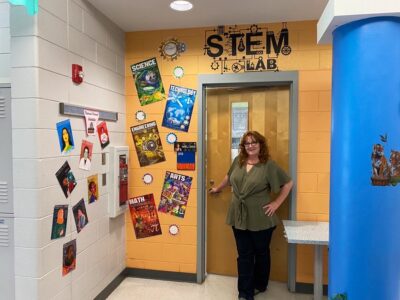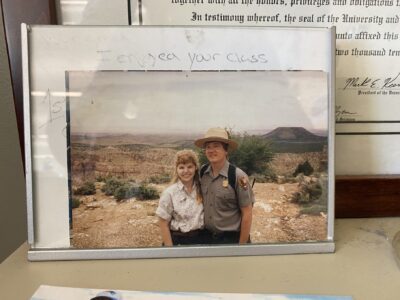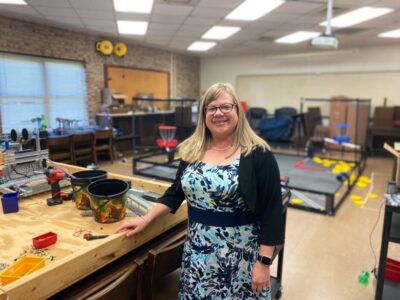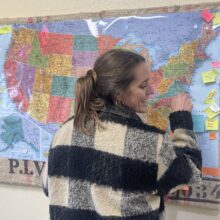|
|
Behind the Story
In this series, we are visiting the classrooms of this year’s Burroughs Wellcome Fund (BWF) Career and Science award winners. All 2023 recipients are in the western North Carolina district and will receive $175,000 for their schools. We visited the four winners over three days, documenting classroom activity and asking each educator the same questions. Our conversation below has been edited for length and clarity.
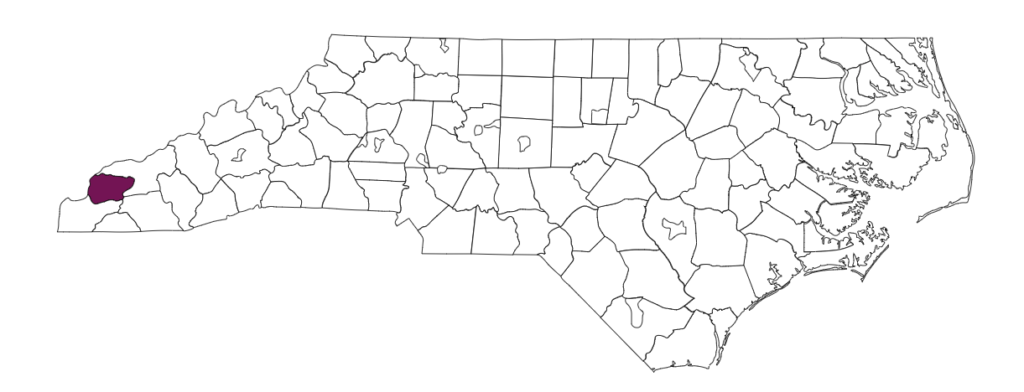
In Ben Davis’s Robbinsville High School classroom, next to the door sits a textbook on a shelf bound by layers of masking tape. Handwritten on the adhesive in bubble letters, its easy to see this is a book about “SCIENCE.”
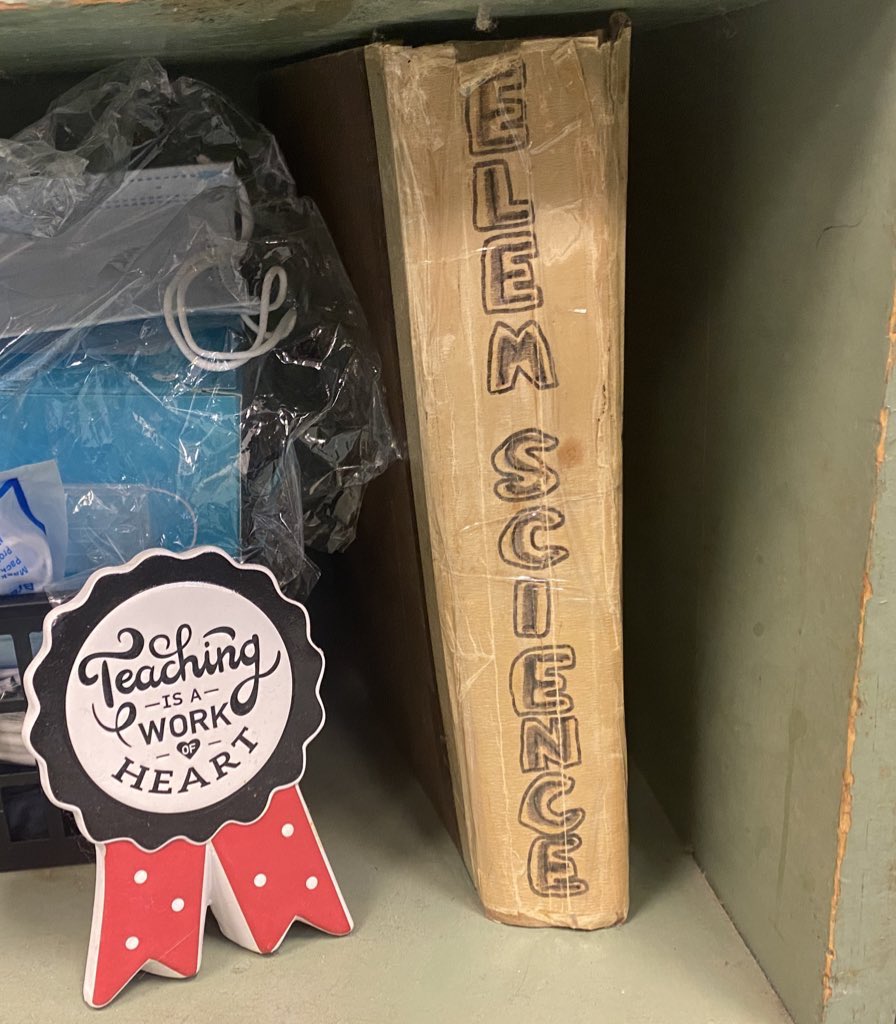
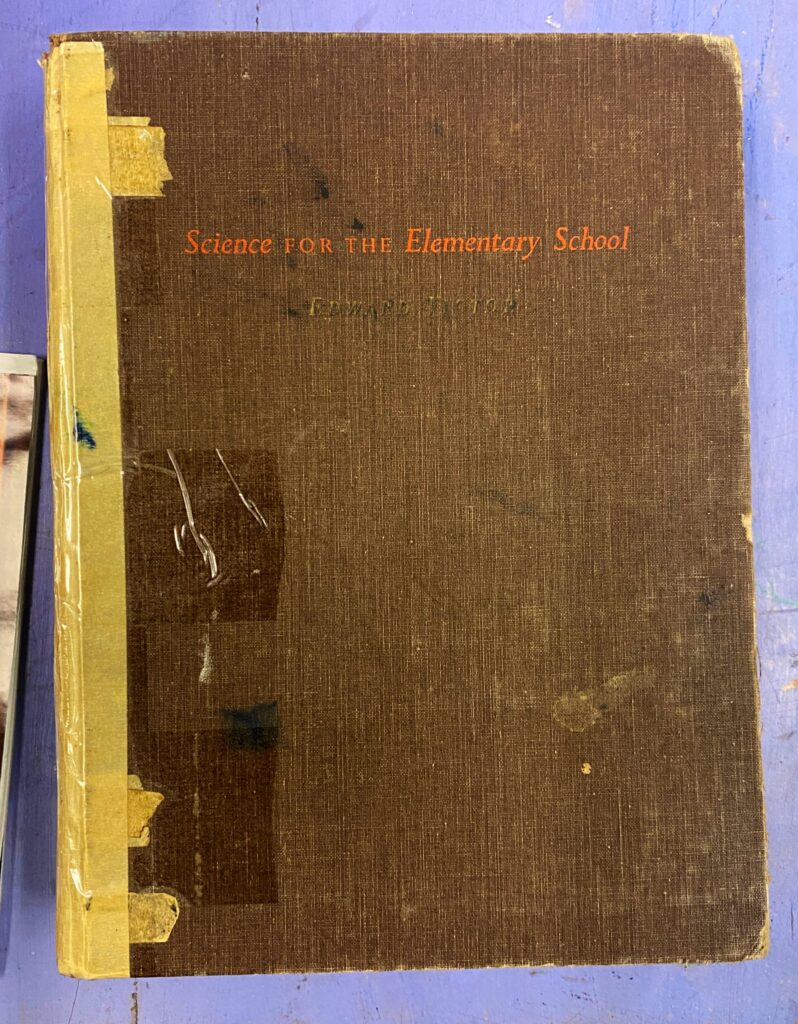
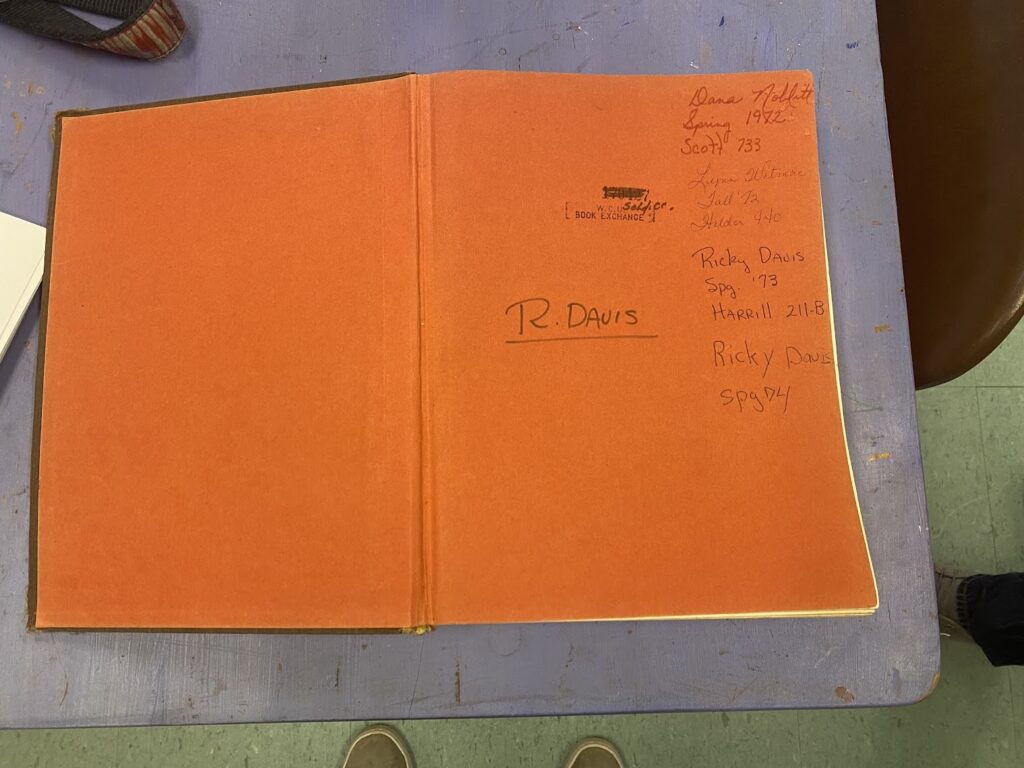
The book is 50 years old. It’s the embodiment of the phrase “wear and tear.” A text that has been rifled through, marked up, and thrown in a backpack countless times. It is well loved and holds a special place in the Davis family.
The book’s title is “Science for the Elementary School,“ and it belonged to Ben Davis’ dad during his education at Western Carolina University. Davis, a 2023 BWF Career and Science award recipient, is a science educator in Graham County, and so was his dad.
In the beginning, Davis did not know teaching was his inevitable future. He graduated from Robbinsville and headed to N.C. State University to study microbiology. He received his masters in biotechnology, and while earning this degree, he taught a lab. He thought he was going to work in vaccine development and did for a couple of years, but that biology lab stuck with him. He fell in love with teaching, and fell right into the family business of education.
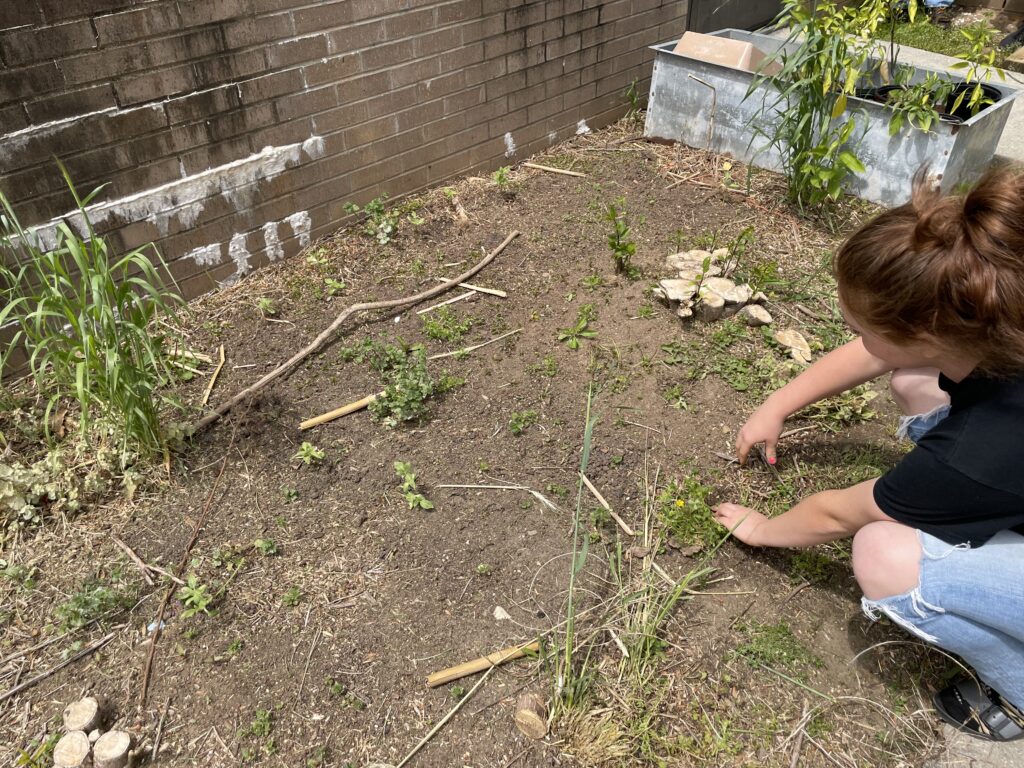
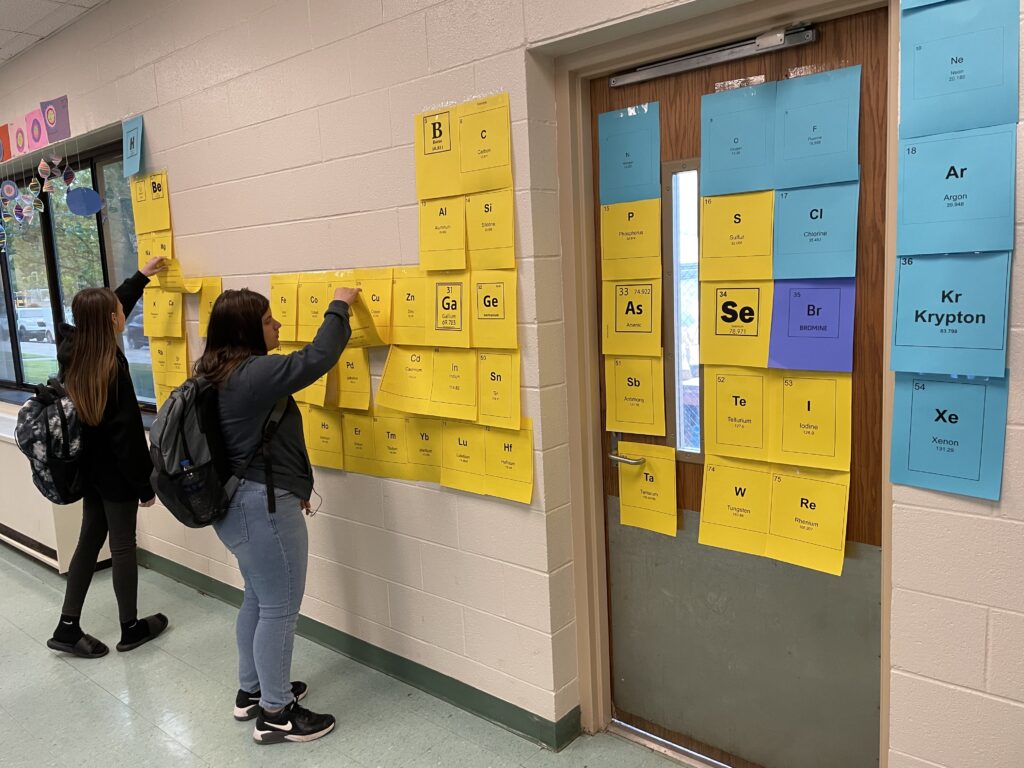
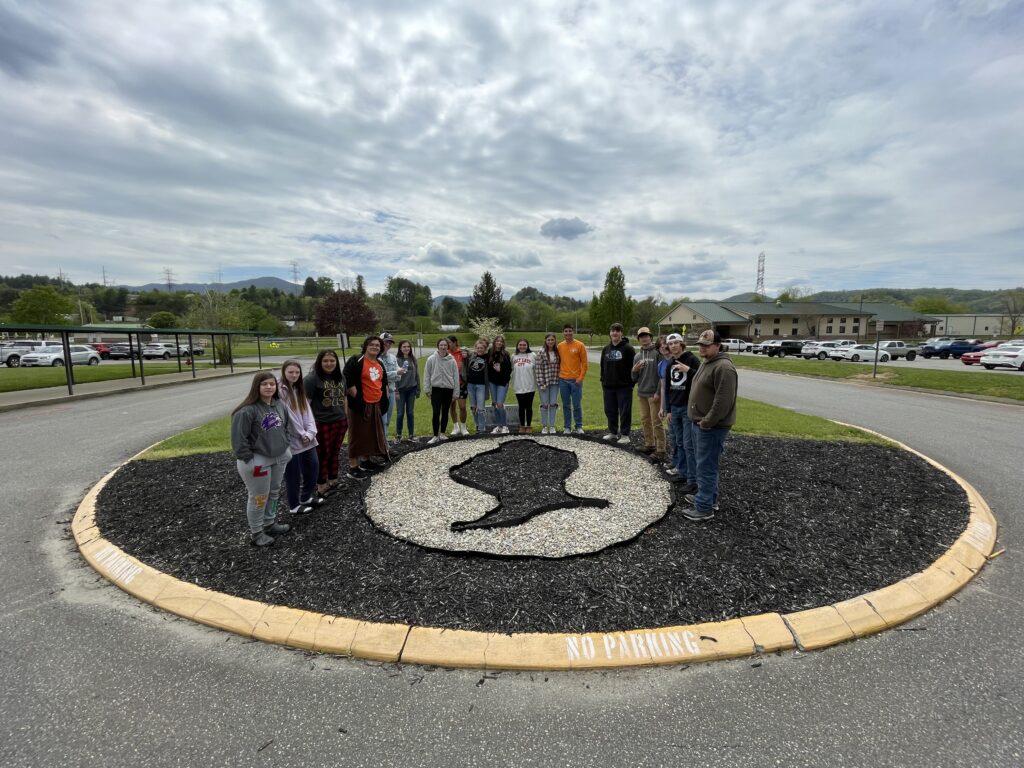
Davis and his wife, a counselor in the school system, decided to return to their roots in Graham County in 2007, and he has been teaching ever since.
In the last four years, he led a program for sixth, seventh, and eight grade girls called SciGirls. Focusing on STEM-related career and college awareness, skills, and experiences for girls, the program allows a typically underserved student population to experience a variety of STEM activities and mentoring.
Pulling out his father’s old textbook, its placement in his classroom is fitting. One of the things Davis plans to do with the BWF award money is to revamp an outdoor classroom at the elementary school and provide an environmental science enrichment class for fourth graders based on the Project WILD curriculum.
He looks forward to inspiring curiosity in science at a young age.
“The goal is to get them early and keep them excited,” Davis said.
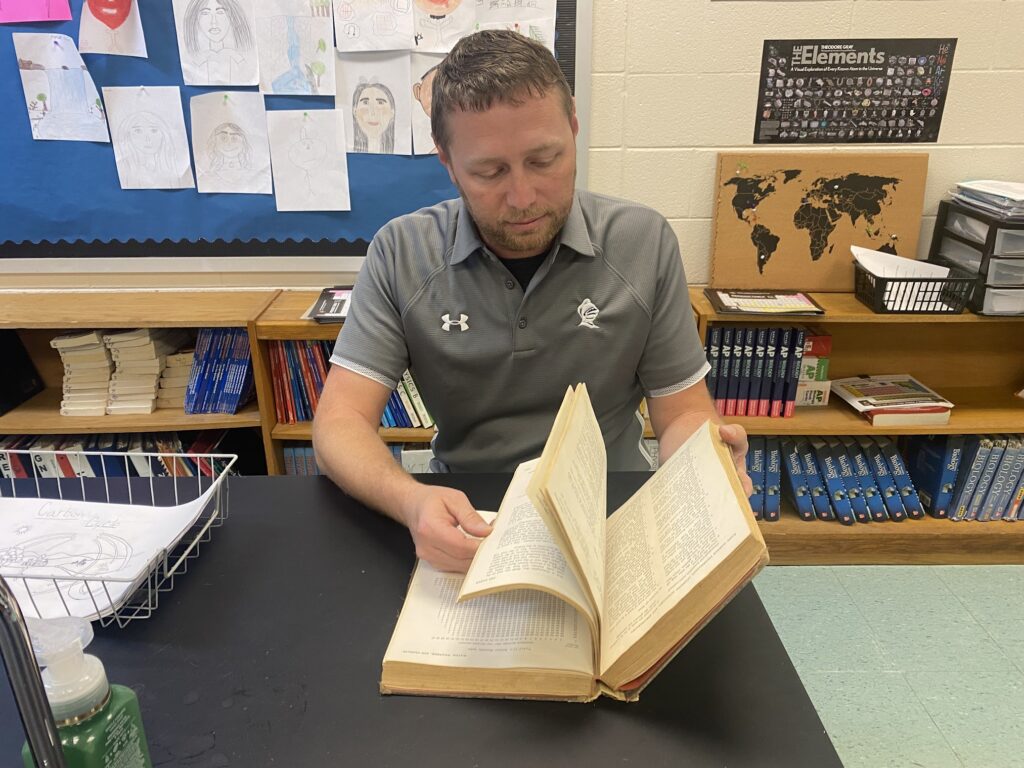
EdNC: When did you know you loved science, or what made you love science?
Davis: My dad was a science teacher. He started as a science teacher, and then he became principal, assistant superintendent, then superintendent. And my mom was an elementary school music teacher.
I was always real curious about science. I started reading early, and my mom laughs because I would read the encyclopedia.
My dad didn’t really push me towards science, but he was always helping me explain stuff, and he’s the one who taught us how to build rockets. He’d take us camping and fishing and get us outside. So we just got into science from a really early age.
Like every kid, I wanted to be a paleontologist for a while, because I was really into dinosaurs, and then I wanted to be an astronaut. And it went from there, we just got really into science. But that’s what I like to do here, is get kids excited about science and then apply it to their everyday lives.
EdNC: What educator made the biggest impact on you and why?
Davis: My dad was a big influence because he taught science and was always explaining “the why” to things, and saying, “Hey, come here and check this out.” As I got to middle school, I had a science teacher who when I returned became a colleague. Her name is Melissa Caldwell.
She was always very pro science and excited about whatever the kids were doing. We could count on her to go with us on a field trip or take us to competitions. She was really a driver for science education here. She was very inspirational.
And my high school math teacher. I had her for four years. We got along really well and she just pushed me to go to N.C. State, to go do and see and experience the world. That was all really important.
EdNC: Of all the things you do in class, what do you think makes the greatest impact on students?
Davis: For my students, anything that they can do that is hands-on has the greatest impact. It can be something little, like next week, we’re going to do pH indicators with red cabbage. And that’s a pretty common lab, but that is something that is really cool, and they can see the changes.
It’s those little things. That’s what I hear from other students who come back, and they tell me, “I miss your class, we did so many labs in there.” So it’s little hands-on things that take 30 minutes, but it’s something that’s not a worksheet and it’s something they can see and measure and touch. Those things definitely have an impact.
EdNC: Looking forward, what do you think will engage future generations in science?
Davis: I think finding things that make kids curious. We have access to the world now, right? Like literally the whole world. But anything that gets them asking questions, and keeping them curious. Being entertained is different than being curious.
I have students who come in and say, I saw this thing on Tik Tok, let me show you. And I’m like, “That’s animation, they used animation for that,” and at least they were curious about it. They ask things like “Is this true? Can this happen?” looking through the videos. It’s all about exposing them to what science is doing and what we can do with science.
Project: Fourth grade outdoor classroom
Davis will use this award money to enhance STEM learning in Graham County Schools. He will share equipment and professional development funds with other science educators in the district.
He will also build an outdoor classroom on the campus of Robbinsville Elementary as well as add an environmental science enrichment class for fourth grade students based on the Project WILD curriculum.
He plans on using the environment of Graham County and leaning on already established relationships with the US Forest Service and conservation services in the area, bringing in professionals that exemplify careers in the outdoors.
Editor’s note: The Burroughs Wellcome Fund supports the work of EducationNC.
Recommended reading
